Although human rights are being gravely undermined in numerous countries across the world, Amnesty International’s supporters and activists have shown that change is always possible…
Changing legislation
July: Ghana’s Parliament voted to remove the death penalty from the 1960 Criminal and Other Offences Act and the 1962 Armed Forces Act, making the country abolitionist in practice. Through these steps, Ghana took a major step towards abolishing the death penalty.
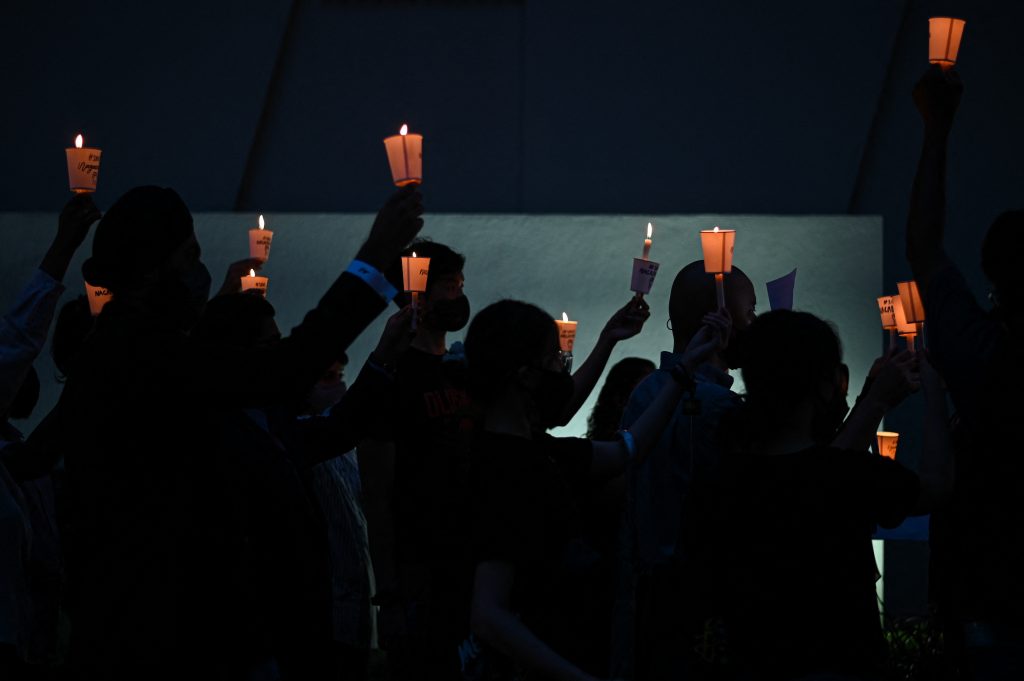
Legislative amendments to repeal the mandatory death penalty came into force in Malaysia on 4 July, also abolishing the death penalty in full for seven offences. The courts were given the power to review the sentences of the more than 1,000 people on death row and use their discretion to decide between the death penalty or terms of imprisonment and, regrettably, whipping – a cruel punishment prohibited under international human rights law. With the official moratorium on executions of 2018 still in place, these reforms have the potential to reduce the number of death sentences imposed and represent an important milestone in Malaysia’s journey towards abolition.
Both developments are a victory for all those who have tirelessly campaigned to consign this cruel punishment to history, including Amnesty International.
August: Following Taiwan’s #MeToo movement and Amnesty International Taiwan’s advocacy to end online sexual violence, the Government passed an amendment to Taiwan’s “Sexual Assault Crime Prevention Act”, demanding internet platforms or service providers restrict the browsing of, or remove, webpage materials related to these crimes.
September: President Biden announced the first-ever White House Office of Gun Violence Prevention, which Amnesty International USA has been advocating for since 2018.
October: After more than two years of negotiations, the Austrian coalition government agreed on an access to information law. Amnesty International Austria has actively supported this legislation since the beginning. Although the proposed law has some weaknesses, it is nonetheless a step towards greater transparency for the authorities and state-owned companies.
October: The Congress of Argentina approved the Olimpia Law, which seeks to prevent gender-based violence online and hold perpetrators accountable. Amnesty International Argentina has been calling for this law to be passed for several years, having released reports revealing how one in three women in Argentina have experienced online violence.
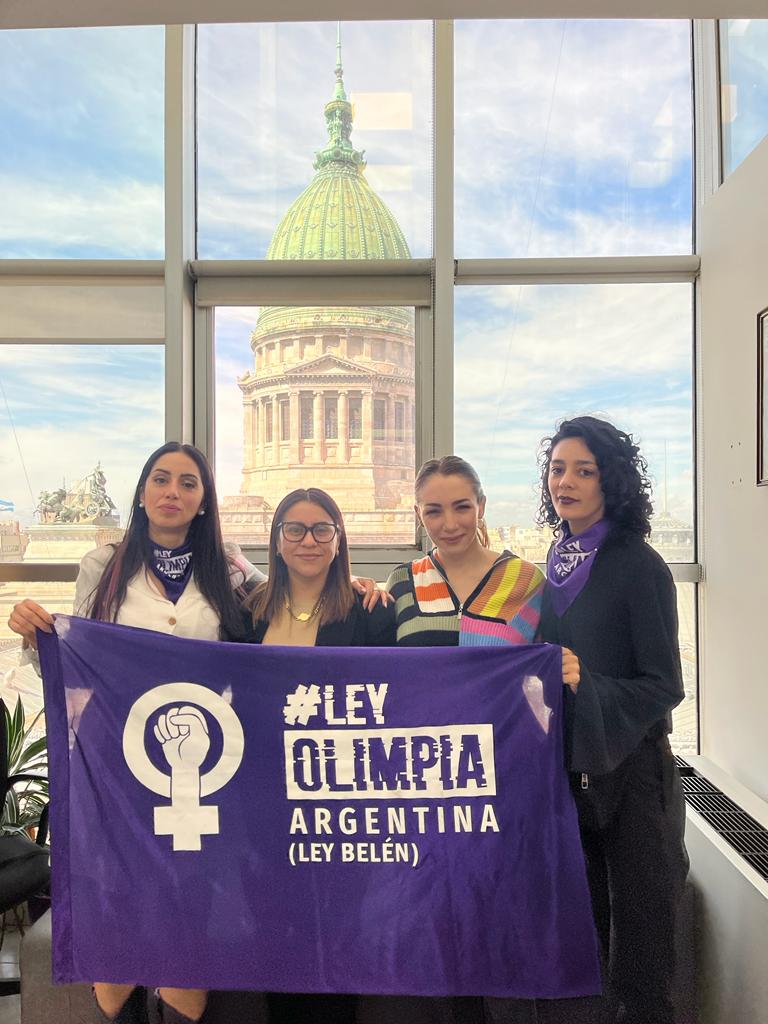
The new law is named after Olimpia Coral Melo, an activist who has been campaigning for violence-free digital spaces for girls and women.
“I am a survivor of sexual violence. I was on the verge of suicide. I felt guilty but my mother supported me,” she told Amnesty International Argentina.
Children and young people
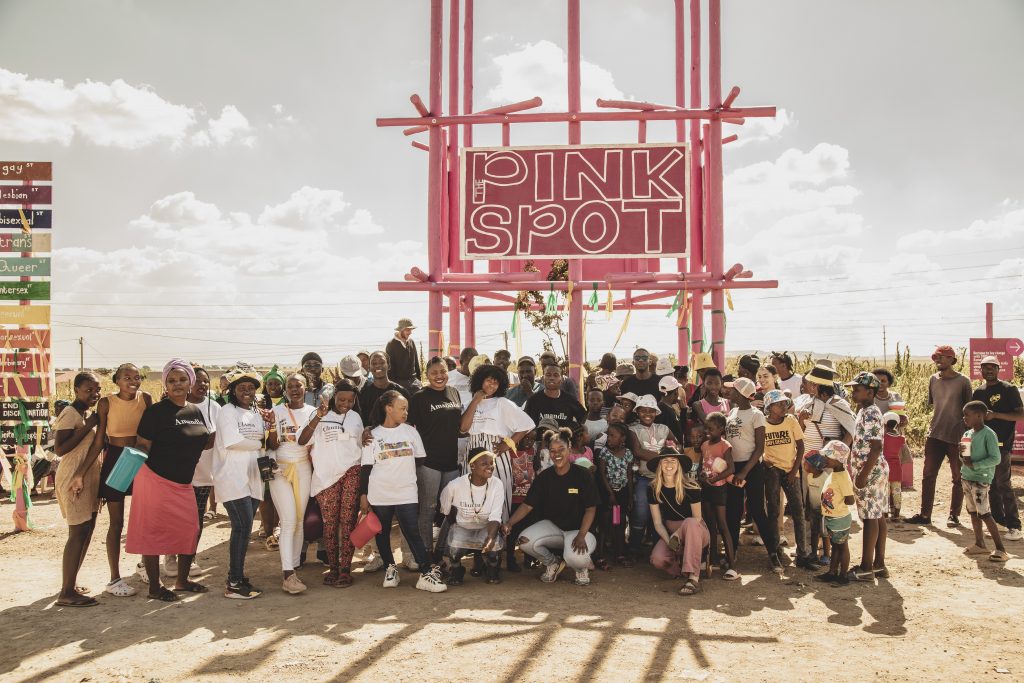
Amnesty International South Africa, with the support of the Canada Fund for Local Initiatives, piloted Digital Disruptors, which equipped 15 young activists with the knowledge and tools to develop youth-led campaigns. The Digital Disruptors called for the local government in Orange Farm, located outside Johannesburg, to implement Gender-Based vVolence (GBV) policies that promote positive change. The Digital Disrupters also transformed a hotspot for crime and violence into a place where residents felt safe to learn about and host dialogues and solutions to GBV in the area.
August: Paraguay’s National Council for Children and Adolescents approved the National Programme for the Prevention and Care of Child and Adolescent Victims of Sexual Abuse, which was one of the key recommendations of Amnesty International’s report, “They are girls, not mothers”.
Education
November: Following two years of advocacy from Amnesty International, the Council of Europe (CoE) integrated Amnesty International’s recommendations into their 2024-2028 Human Rights Education (HRE) roadmap. In a huge win, Amnesty International’s proposal to “localize human rights education” is now the centrepiece of the new roadmap as the CoE commits to adapt to varying local contexts to make HRE more relatable and accessible to youth in the region.
Finding freedom
June: The four human rights defenders in the Buyukada case — Taner Kılıç, İdil Eser, Özlem Dalkıran and Günal Kurşun, who were convicted in July 2020 on baseless charges — were finally acquitted. Their release comes six years after Taner’s initial arrest.
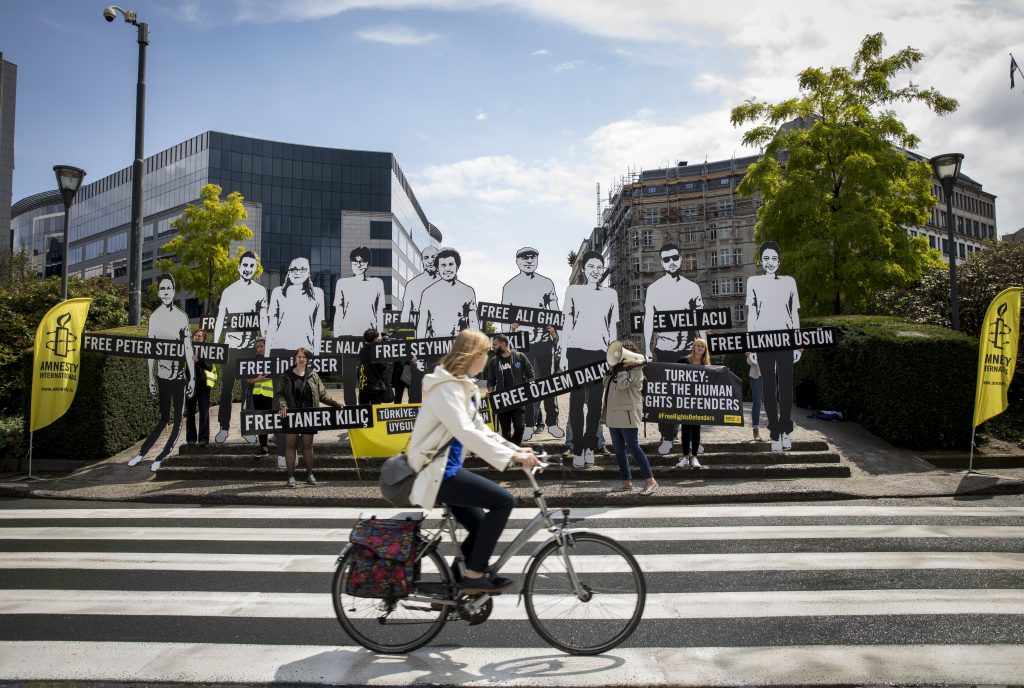 The four expressed gratitude to Amnesty International: “For six years, we have watched the wheels of injustice grind as the baseless claims levelled against these four brave human rights defenders have been accepted as fact by successive courts. Today’s ruling revealed the true purpose of such politically motivated prosecutions: using the courts as a weapon to silence critical voices.”
The four expressed gratitude to Amnesty International: “For six years, we have watched the wheels of injustice grind as the baseless claims levelled against these four brave human rights defenders have been accepted as fact by successive courts. Today’s ruling revealed the true purpose of such politically motivated prosecutions: using the courts as a weapon to silence critical voices.”
In July, the prosecutor appealed Taner’s acquittal, and Taner, Idil and Özlem appealed the grounds (lack of evidence) of their acquittals. These appeals are still pending.
June: Elias Bizimungu, a 33-year-old journalist and member of youth movement LUCHA, was arrested at an army checkpoint and taken into custody at the beginning of a two-day peaceful mobilization against Rwanda’s support for the M23 rebel group. After he was tried and condemned by the military court, Amnesty International launched a campaign calling for his release. He was finally acquitted by a civilian court and released in June.
July: Human rights lawyer Mohamed Baker was released thanks to a presidential pardon after spending four years in arbitrary detention solely for his crucial human rights work. Amnesty International has campaigned extensively on his case and he was part of Write for Rights 2022.
July: Yemeni journalists Mohammed al-Salahi and Mohammed al-Junaid were released from the Huthi-run Security and Intelligence Services detention centre in Hodeidah, Yemen, after nearly five years in detention. During their detention, they were subjected to a series of gross human rights violations, including enforced disappearance, torture and other ill-treatment, and denial of access to their lawyer. Amnesty International has been campaigning for their release since 2018.
July: Chau Van Kham, a 73-year-old Australian citizen and Vietnamese pro-democracy activist, returned to Sydney earlier this year as a free man. Chau was detained within hours of arriving in Vietnam in 2019 and sentenced to 12 years in prison for being a member of the Viet Tan political party. Amnesty International Australia considered Chau to be a prisoner of conscience who was detained solely for his peaceful political beliefs.
Dan Nguyen, Chau Van Kham’s lawyer, thanked Amnesty International for its support: “We share the happy news that Mr Chau Van Kham is well and has returned to his family today. We thank the many organizations and individuals in Australia and all over the world who have helped to lobby for his freedom.”
July: Earlier this year, Joanah Mamombe and Cecillia Chimbiri were acquitted of one of the charges after they were arrested in 2020 for leading an anti-government protest. It was a significant step forward for the pair, which allowed them to start healing from their ordeal. As part of Amnesty International’s Write for Rights campaign 2022, our supporters took action while Amnesty International Zimbabwe supported them throughout their trials.
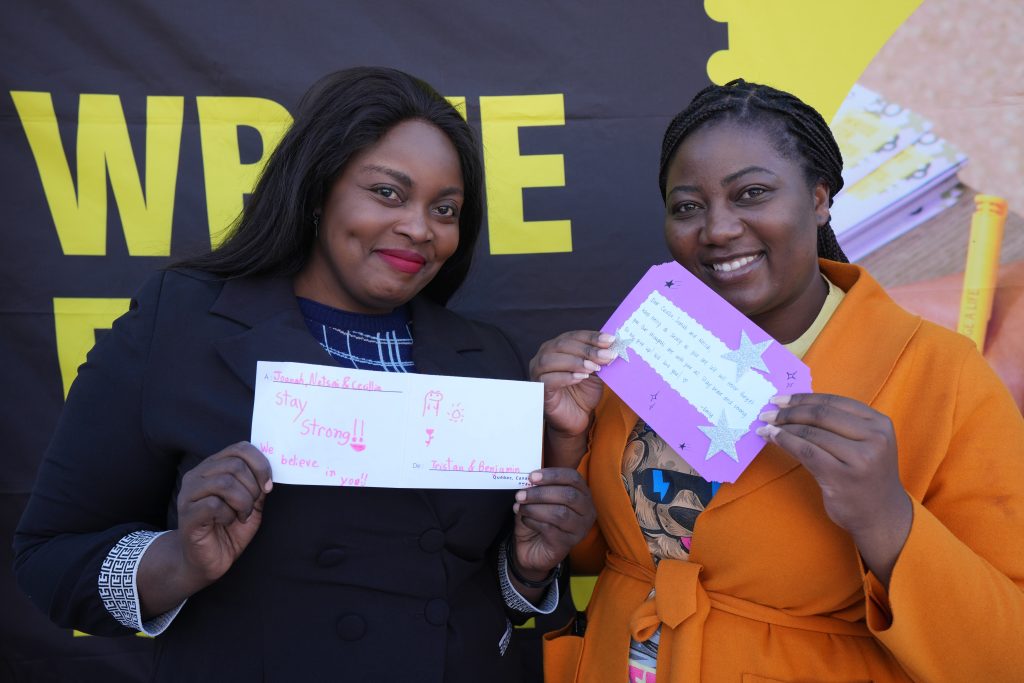
While reading the letters of support, Joanah said: “Thank you so much to our Amnesty International friends for writing all these letters. We are now beginning our journey to heal.”
August: Taiwanese citizen Morrison Lee was finally able to return home after being wrongfully charged of crimes endangering China’s national security. During his ordeal, he was forced to confess on television — a common practice used by the Chinese government to crack down on activists and human rights lawyers. Amnesty International Taiwan campaigned for his release.
September: The convictions of Mücella Yapıcı and Hakan Altınay, both prisoners of conscience, were overturned and they were released from prison in September. Mücella and Hakan expressed gratitude for the letters they received while in prison from Amnesty International activists. They now face a retrial in the new year. The five remaining Fezi 7 prisoners remain in prison.
September: In 2020, Ramzy Razeek, from Sri Lanka, was detained for five months for posting a critical comment on Facebook. Amnesty International launched a call for his release and his case was finally dropped in September after the Sri Lankan Supreme Court ruled that his fundamental rights had been violated. The court also ordered the State to pay him damages.
September/October: Kambiz Kharout and Ebrahim Narouie, two men from Iran’s oppressed Baluchi minority, who were convicted and sentenced to death in relation to the 2022 “Woman Life Freedom” uprising in Iran, were released on bail after their convictions and death sentences were overturned by the Supreme Court. Kambiz Kharout was released in September and Ebrahim Narouie was released in October. Amnesty International has campaigned for their convictions and death sentences to be overturned since February 2023.
October: A day after Amnesty International issued an Urgent Action calling for his release, Somali journalist Mohamed Ibrahim Osman Bulbul was granted bail from Mogadishu prison. He had been arrested in August just for doing his job. A few days later, on 11 October, the Bandir regional court dismissed all charges against Mohamed.
In a message sent to Amnesty International, Mohamed said: “I would like to express my deepest gratitude for your support and tireless advocacy for my freedom. Your Urgent Action has really played a huge role in ensuring that I gained my freedom. I am deeply touched by your solidarity.”
October: Detained since 7 January 2023, Mortaza Behboudi was released on 18 October following calls from Amnesty International France. After spending more than nine months in detention in Afghanistan, the 29-year-old French-Afghan journalist will be reunited with his family. He was accused of espionage by the Taliban who, since their return to power in August 2021, have continued to drastically reduce the human rights of the people.
October: The French-Iranian academic Fariba Adelkhah was detained in June 2019 in Iran. After calls from Amnesty International, she was released and allowed to return to France in October. She had been sentenced to five years in prison for “endangering national security”, a charge she has always denied. Upon her release, Fariba thanked Amnesty International: “Now all that is behind me. What remains are all these gestures of friendship and commitment, these mobilizations of the known and the unknown.”
October: Afghani Education activist Matiullah Wesa was released on 26 October, after spending nearly seven months in prison for promoting girls’ right to education and criticizing the Taliban’s policy banning girls from seeking secondary education. Amnesty International issued an Urgent Action and campaigned until he was released.
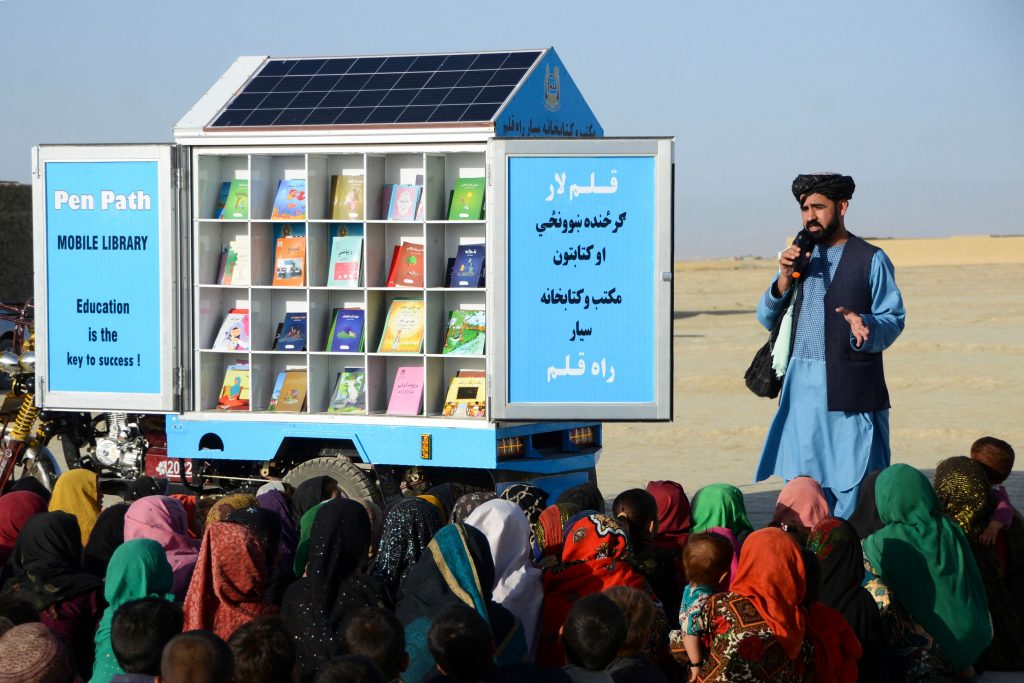
Matiullah’s brother, Attaullah Wesa, Co-founder and Executive Director of Penpath, said:
“We are grateful to Amnesty International and its 10 million members who stood by our side. The solidarity, support and advocacy from Amnesty and its members motivated us to fight for Wesa’s release and we are so thankful for their support. While we are still outraged with the Taliban’s court judgment and the seven months of freedom Matiullah lost, we will continue our advocacy on girls’ right to education in Afghanistan.”
November: University lecturer Firew Bekele was released after spending three months in detention for his alleged role in writing and publishing a book called The Hijacked Revolution. He was a prisoner of conscience who should have never been detained in the first place. The head of the Ethiopian Human Rights Commission visited Firew Bekele in prison and called for his immediate release following the publication of Amnesty International’s Urgent Action in September.
November: The administrative detention order for Sajad Gul, a Kashmiri journalist, was quashed after he spent 22 months in detention under the draconian Jammu & Kashmir Public Safety Act, following calls from Amnesty International.
November: After nearly seven long years in arbitrary detention, prisoner of conscience and former Senator Leila de Lima was released on bail after a Philippine court on 13 November granted her bail application in the last drug-related charge against her.
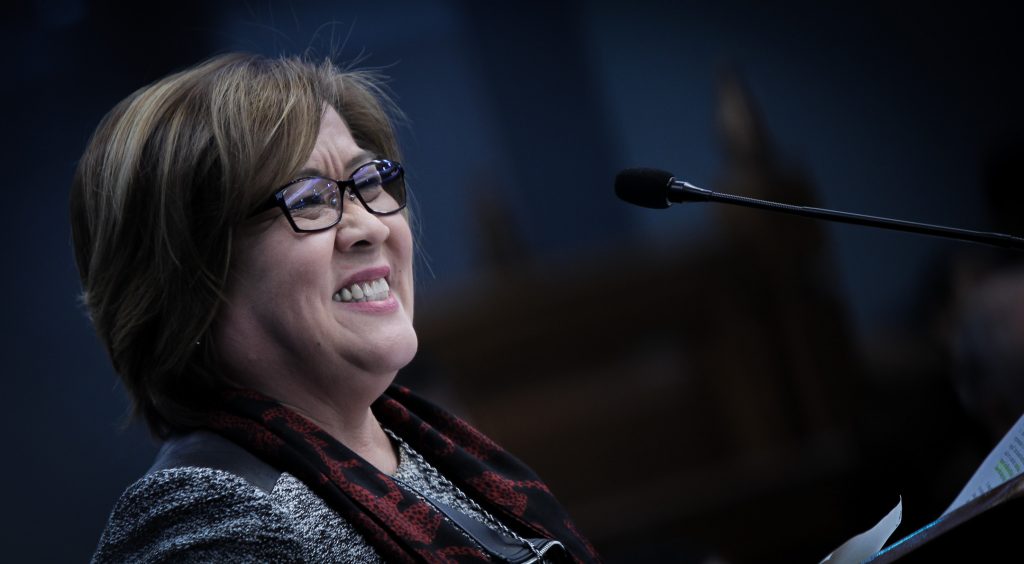
Amnesty International welcomed this positive development and called for this final case to be dismissed and for those behind her arbitrary detention and other violations of her rights to be brought to justice in fair trials. Amnesty International has been working on de Lima’s case since her arrest in 2017, reiterating in domestic and international statements that the charges against her were fabricated.
Justice and accountability
June: Switzerland amended its rape law to a consent-based definition and, in July, the Netherlands’ House of Representatives voted to amend the Sexual Offences Act by introducing a consent-based definition of rape. The bill is expected to be fully passed — following a vote by the Senate — within the next months.
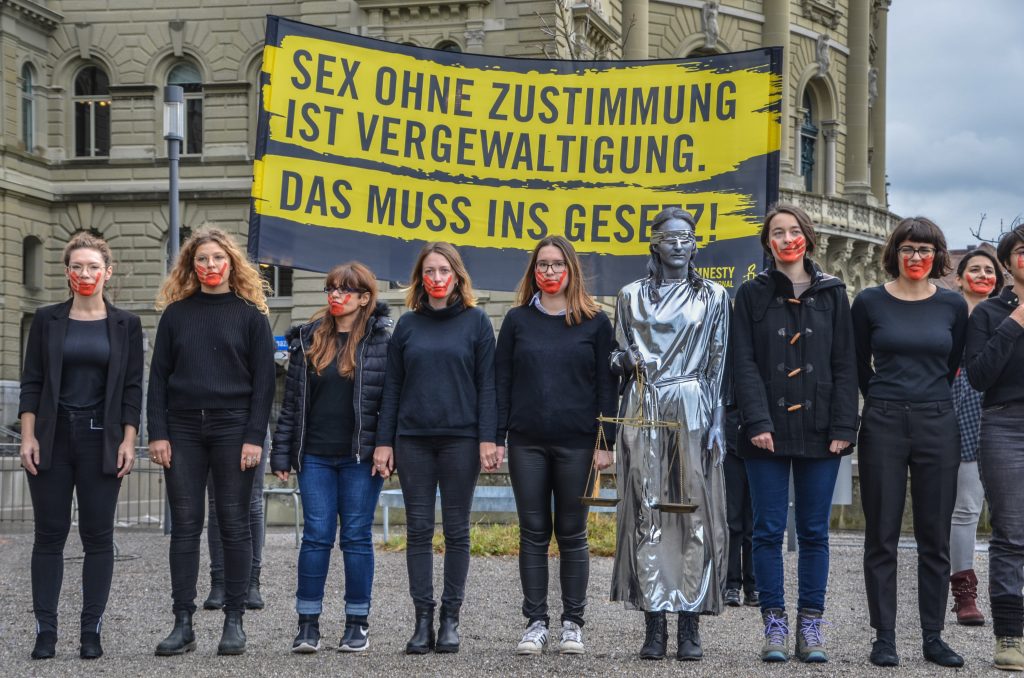
These are huge victories for activists, survivors and allies, as well as for Amnesty International’s Let’s Talk About Yes campaign and advocacy in the region.
June: The United Nations General Assembly (UNGA) established an independent and international institution to clarify the fate and whereabouts of tens of thousands of missing and forcibly disappeared people in Syria. It will offer a single avenue to register cases, as well as provide families with long-awaited answers about what happened to their loved ones.
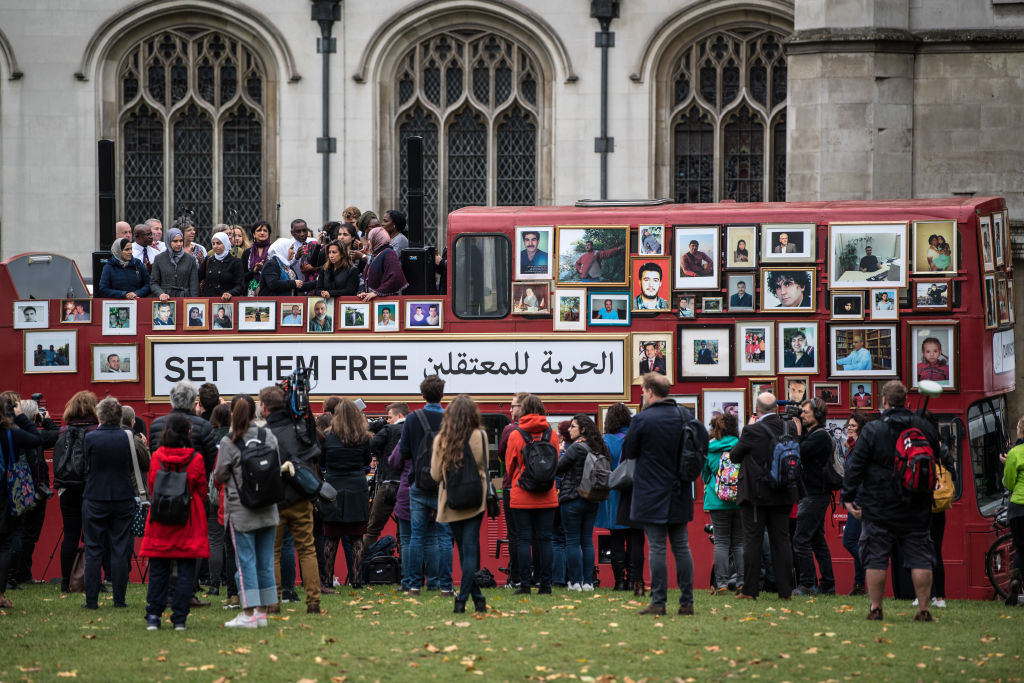
Amnesty International provided support to the Syrian families and survivors who have been leading the charge to create such a body, by facilitating meetings between them and member states to convince them to support the institution.
July: Earlier this year, Amnesty International South Africa was admitted as an amicus curiae (a friend of the court) to provide insight and knowledge into the application of a declaratory order calling for Russian President Vladimir Putin to be arrested if he attended the BRICS (Brazil, Russia, India, China, and South Africa) Leadership Summit in South Africa. Before the matter could be heard in court, it was announced that President Putin would no longer attend the summit. The Court subsequently granted an order calling for his arrest if he did arrive. It was a huge win for justice and accountability, and Amnesty International’s litigation efforts showed the power of the movement.
August: The European Court of Human Rights issued a decisionin a case brought by 261 sex workers against France. The sex workers, including women and men from 20 different countries who live in France, alleged violations of their rights under Articles 2, 3 and 8 of the European Convention of Human Rights, as aspects of sex work are criminalized in France. The Court declared the case admissible and acknowledged the possible victim status of the complainants in a significant first step. In its decision, the Court cited testimonies from sex workers themselves — an important acknowledgement of the voices of sex workers. Amnesty International submitted an amicus curiaein the case.
August: Following years of lobbying from Amnesty International Italy, Father Franco Reverberi was extradited to Argentina, where he will finally be tried for crimes against humanity committed during the military dictatorship from 1976 to 1983. In a bid to avoid detention, Reverberi stayed in Italy to avoid the Argentinian justice system, benefiting from Italy’s justice system to refuse extradition. Amnesty International was also key in calling for the inclusion of torture in Italy’s criminal code.
October: Amnesty International published the report, My heart is in pain’: Older people’s experience of conflict, displacement, and detention in Northeast Nigeria, in December 2020. As well as documenting how older people in the country are disproportionately affected by conflict and how they’re consistently overlooked by humanitarian response teams, Amnesty International called for Nigeria to ratify the Protocol to protect the rights of older people.
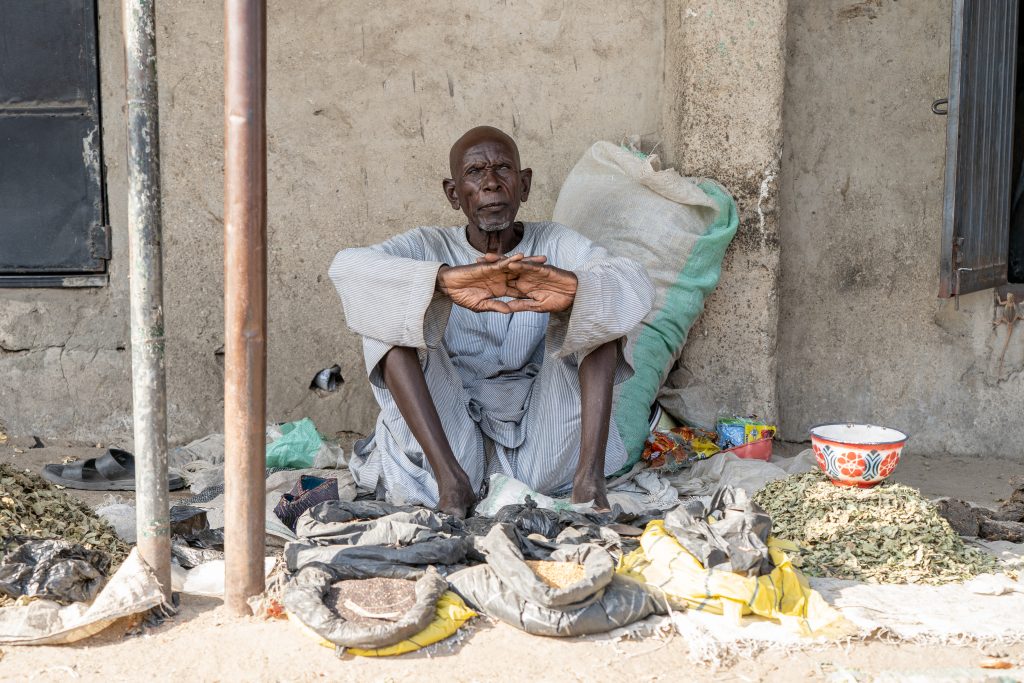
In a huge win for older people, the Nigerian government has listened to Amnesty International’s call and ratified this Protocol, marking a vital step toward fully protecting the human rights of older people in Nigeria.
October: Amnesty International joined forces with other organizations to lobby the Human Rights Council to prioritize addressing impunity in Sudan. As a result, the UN HRC adopted a resolution to establish an independent international fact-finding mission for Sudan. The aim is to investigate and establish the facts, circumstances and root causes of all alleged human rights violations and abuses, and violations of international humanitarian law, including those committed against refugees, and related crimes in the context of the ongoing armed conflict. It is a small win for accountability efforts on Sudan.
November: In an historic step towards a fairer and more inclusive international tax policy system, the UN General Assembly voted in favour of a resolution to begin developing a UN Tax Convention. This would allow all countries to participate more inclusively in global tax policy while improving their ability to protect and promote their taxing rights. Amnesty International has been an active member of a number of civil society coalitions, which have been pushing states to support fairer and more inclusive global tax policy-making, and will continue to participate in the development of the Convention to generate more resources for states to meet their human rights obligations.
November: Amnesty International’s report Nobody Wants to Leave Their Home: Mass forced evictions at Cambodia’s UNESCO World Heritage Site of Angkor was published in November following an eight-month long investigation in Siem Reap, Cambodia.
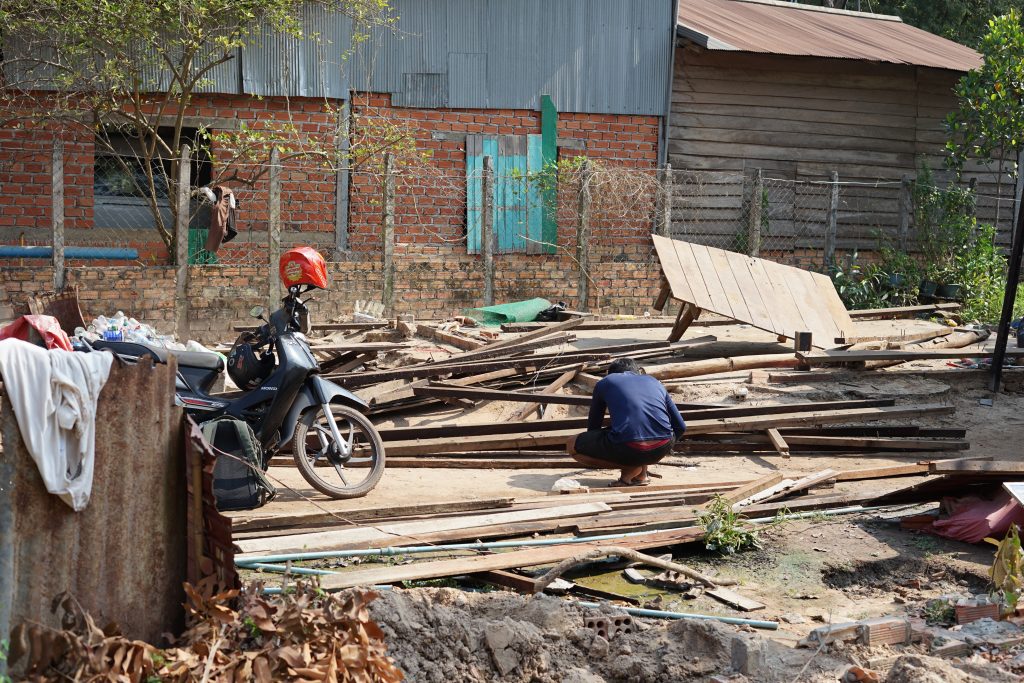
The day after the report’s publication, UNESCO said it is deeply concerned about Amnesty International’s allegations and has moved up the deadline for Cambodian authorities to issue a conservation report on Angkor. While officials in Cambodia have refused to acknowledge the forced evictions, they have invited Amnesty International to the country to further discuss the situation, an invitation that we have accepted.
November: Latvia ratified the Istanbul Convention, the international treaty for preventing and combating violence of all kinds against women and girls, following years of campaigning from Amnesty International.
LGBTI rights
September: A Hong Kong court granted a partial victory to LGBTI activist Jimmy Sham, who has been bidding to have his overseas same-sex marriage recognized since 2018. The ruling, following a campaign from Amnesty International, was an important step forward and a moment of hope for Hong Kong’s LGBTI community, who have long been denied equal rights due to the city’s outdated and discriminatory laws.Tech
October: Amnesty International Tech’s Disrupting Surveillance Team collaborated with the European Investigative Collaborations media network to publish two reports that exposed the global proliferation of surveillance technologies and the failure of governments and the EU to properly regulate the industry. The Predator Files shed light on the Intellexa alliance and its surveillance products, including highly invasive spyware Predator.
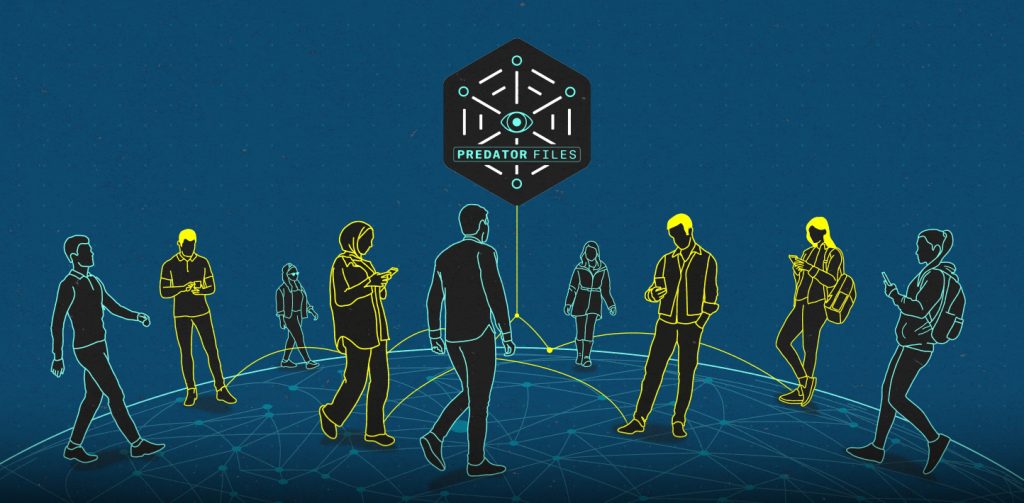
Since its publication, UN experts and EU MEPs have reiterated Amnesty International’s calls for further investigations, tighter export controls and a global ban on highly invasive spyware. National governments have taken steps towards investigating Intellexa and establishing tighter regulations on the use and proliferation of spyware, and EU MEPs have adopted a resolution criticising the lack of follow-up to Parliament’s proposals on curbing spyware abuse.
Find out more about the human right wins from January – June 2023.


